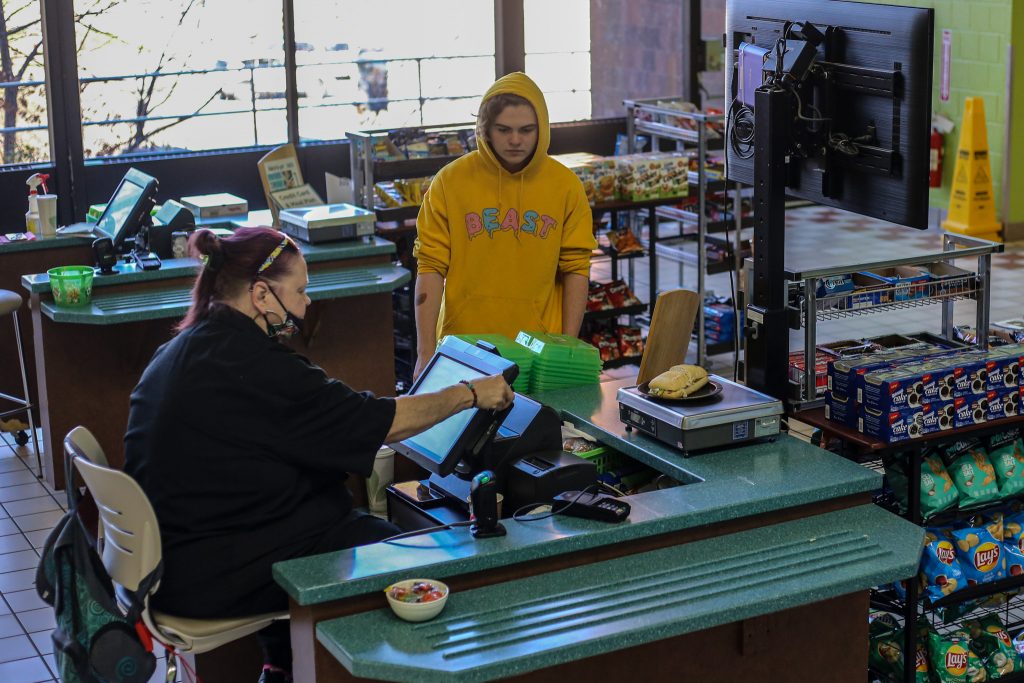Binghamton University has been approved by The Culinary Institute of America (CIA) to be an externship site for aspiring chefs.
The CIA, established in 1946 as the first culinary college in the United States, is a private culinary school located in Hyde Park, New York, that trains its students to work in professional kitchens and executive roles, while providing them with industry connections. There are four CIA campuses worldwide and more than 2,000 internships offered globally through their program. After an application process, BU received approval this semester to host CIA students as interns for Binghamton University Dining Services (BUDS).
With the externship approval, new interns will work in the University dining halls each semester to learn about high-volume food production. According to Charles Williams, campus executive chef for BUDS, the purpose of the externship is to “help BUDS improve the quality of the meals [they] serve on campus.” Williams further explained his reasoning behind hosting CIA students at BU.
“CIA externs are receiving a world class culinary education, and we know they can bring their knowledge and expertise to campus,” Williams wrote in an email. “In turn, we have [seven] chef managers on campus, all with different backgrounds and areas of expertise. Each chef enjoys participating and mentoring in the extern’s development. Long term, I hope these externs see what a great campus this is and they want to have a career as the next generation of culinary leaders for BUDS.”
Amanda Secor, the senior manager in marketing communications at the CIA, explained that the CIA externships are offered to provide interns experience in their preferred fields and networking opportunities and aid the professional growth of students.
“As part of their education, CIA students complete a semester-long applied work experience, in which they have the opportunity to practice their skills in a live environment (in the case of [BU], a dining hall), gain exposure to new environments and develop their professional network,” Secor wrote in an email. “Students select potential locations from a curated list of pre-approved hosts and undergo a formal interview process before receiving an offer.”
One of the externships is currently underway in dining halls at BU. According to Williams, prior to hosting an internship, prospective host sites went through a detailed application process in which they stated their plans for training the extern and gave a summary of their work.
“We submitted a 14-week training agenda, sample menus, a video of the Hinman [Dining Hall] facility, our management organizational chart and a brief overview of all of our services,” Williams wrote in an email. “The [CIA] reviewed the information and we were approved to be a host site.”
As a part of their training, interns work closely alongside current dining hall staff to provide food for students. Pravalika Bonala, a dining hall worker at Appalachian Dining Hall and a first-year graduate student pursuing a masters degree in computer science, explained the difference between her job and that of the CIA interns, who will mainly focus on the culinary side of the dining hall.
“I do a few things — work in the line serving food, behind the cash registers and at the grill,” Bonala said. “I do a bit of everything when I’m working.”
Chris Ortiz, a CIA intern at BU, has recently begun the portion of his internship working with dining hall staff. Ortiz will be mentored by the chef managers and will learn new roles within the kitchen. Williams expressed satisfaction with Ortiz and his work.
“[Ortiz] is a wonderful young chef,” Williams wrote. “He has been incredibly hard-working and dedicated to his development. [Ortiz] is flexible and always willing to be part of dining hall special events as well as catering events.”
Some students have shown interest in the internship, and the effects it will have on the dining halls or the menus being offered. Khudija Wajid, a sophomore majoring in biology, said she is curious to see the changes to dining hall food the internship may bring.
“This is a really cool opportunity for both the students from the culinary institute and the students here,” Wajid said. “I’m looking forward to seeing if there are any changes the internship will bring to the dining halls.”



